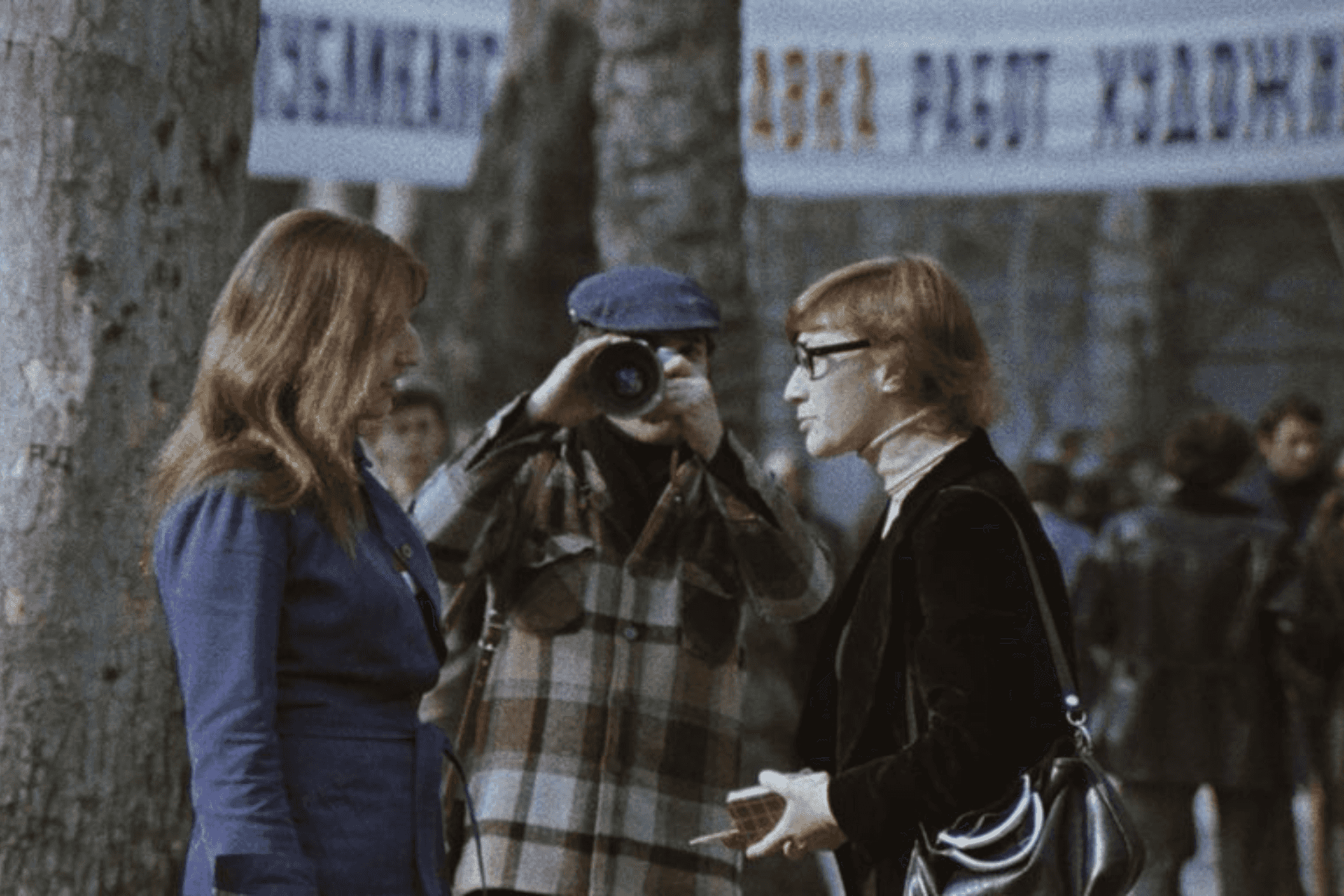
3.5/5★
Levan Akin’s 2019 queer love story feels as urgent as ever under Georgian Dream’s homophobic laws.
‘There is no sex in Georgian dance’ — this is one of the first lines the audience hears in Swedish–Georgian director Levan Akin’s 2019 film And Then We Danced.
The film opens as a teacher chastises two dancers, Merab (Levan Gelbakhiani) and Mari (Ana Javakhishvili), reminding them that every move in Georgian folk dance is meant to display discipline, masculinity, and national pride. Male softness is forbidden, while women must keep their eyes downcast, embodying innocence and purity.
Into this rigid framework of masculinity, machismo, and tradition, Akin weaves a tender, transformative queer love story.
The film follows Merab as he struggles to balance the demands of strict rehearsals with his late-night job as a server in a Georgian restaurant, helping support his financially strained family. Akin portrays him as caring and deeply loving, carefully shaping his character through encounters with his grandmother, his reckless brother, and his divorced parents — retired dancers who once performed at the famous Italian opera house La Scala. All of this unfolds against the backdrop of autumnal Tbilisi. To Georgian viewers, it is clear Akin was not raised there; his lens feels observational, even ‘touristic’, but in the most affectionate way.
Merab’s life shifts dramatically with the arrival of Irakli (Bachi Valishvili), a charismatic newcomer. A rival for a coveted spot in the prestigious troupe, Irakli embodies traditional masculinity — broad-shouldered, dazzling, and self-assured. Yet he is also a source of fascination.
As the two spend more time together, their connection deepens through lingering glances, stolen moments of intimacy, and undeniable chemistry on the dance floor. The tension culminates in a passionate night in the countryside, followed by one of the film’s most striking sequences: Merab’s improvised dance in boxers and a fur hat to Robyn’s Honey. Bathed in warm, flickering golden light, this moment of pure liberation captures the collision of tradition and individuality.
But the spell eventually breaks. Irakli distances himself, and, echoing a familiar trope of queer cinema, it is revealed that he is engaged to a woman back home. Heartbroken, Merab turns to the clubs, where Akin briefly opens a window onto Tbilisi’s authentic vibrant queer life.
The film closes with Merab’s final act of resistance: a solo performance danced on an injured foot. His raw, vulnerable, and deeply personal movements shatter the rigid codes of Georgian tradition, enraging his teachers but sealing his transformation. The joy is unmistakable. In that dance, Merab finally claims the freedom of inhabiting his own body.
The film's young ensemble cast plays beautifully, but the true shining star of the movie is Gelbakhiani. Akin found this formally trained dancer on Instagram and cast him for his debut role. With his lanky charm and big, bright eyes, he creates an unforgettable coming of age portrait of a heartbroken, yet undefeated and hopeful hero. Fast forward six years, and Levan has since won the Best Actor Award at the 2025 Locarno Film Festival for his outstanding performance in Jacqueline Zünd’s Don’t Let the Sun.
And Then We Danced premiered at Cannes Film Festival in 2019 and enjoyed a successful festival run afterwards, but its Georgian premiere in November 2019 sent ultraconservative Georgian groups into a frenzy. Homophobic protesters attacked filmgoers in front of Amirani Cinema in Tbilisi and at other locations. Regardless of the initial hatred, the movie found its way to the audience's heart and soon became one of Georgia’s most popular films.
Since its premiere, however, the landscape for queer Georgians has shifted dramatically — from episodic hostility to periods of mass violence and an increasingly hostile legislative and political environment. Georgian Dream does not delegate the voicing of homophobia to their satellite ultraconservative groups anymore, but instead legislates it itself. With the adoption of homophobic legislative package banning ‘LGBT propaganda’, stigmatisation, uninvestigated violent incidents, and declining democracy, Georgia has moved from spikes of social hostility to a political environment that actively legislates restrictions.
Six years on, Akin’s film resonates as a fearless act of resistance and hope and is as timely as ever.
Film details: And Then We Danced (2019), directed by Levan Akin. The film will be screened on 5 October as part of the 2025 London Georgian Film Festival. It is otherwise available to view on Kanopy and Amazon Prime.










